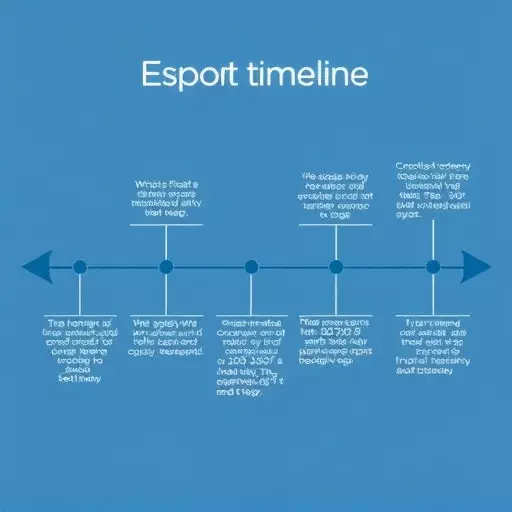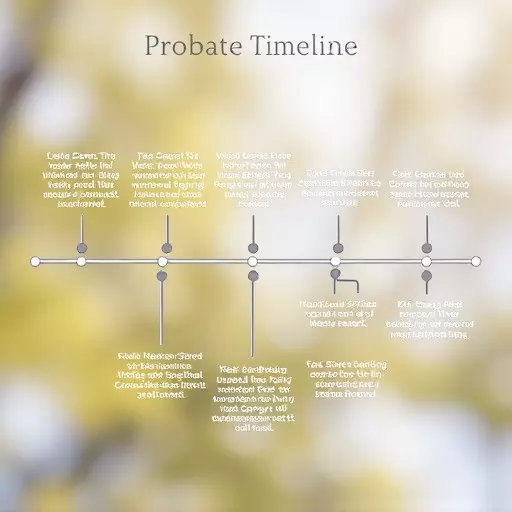Understanding Inheritance Law in Palo Alto, California involves a structured probate timeline designed for fairness and legality in asset distribution. This process includes filing a petition, appraisal of assets, reviewing wills, court supervision, and timely completion by an executor. Key stages include gathering documents, identifying assets & debts, court involvement, legal compliance, and eventual distribution according to the will or state law. A probate timeline expert can navigate these complexities, forecast delays, optimize strategies, and accelerate the estate settlement process, thereby shortening the overall probate timeline.
“Unraveling the intricate web of inheritance law involves understanding a meticulous probate timeline, especially for those seeking guidance from a probate timeline expert in Palo Alto, California. This article delves into the critical stages of this process, from the initial steps of estate settlement to identifying assets and debts, court involvement, distribution of the estate, and common delays that can impact timelines. By exploring these key areas, we provide valuable insights for anyone navigating the complex world of inheritance law.”
- Understanding Inheritance Law: Unraveling the Probate Timeline
- The Initial Steps: When Does the Estate Settlement Process Begin?
- Identifying Assets and Debts: A Critical Phase in Probate Timeline
- Court Involvement: Navigating Legal Requirements for Estate Settlement
- Distributing the Estate: Timing and Fairness in Inheritance Law
- Common Delays and Their Impact on Probate Timeline Expertise
Understanding Inheritance Law: Unraveling the Probate Timeline
Understanding Inheritance Law involves understanding the intricate probate timeline—a structured process designed to ensure fairness and legality in the distribution of a deceased individual’s assets. The probate timeline in Palo Alto, California, is a well-defined series of stages that begin with the filing of a petition for probate by an expert in estate law. This initial step triggers a series of legal proceedings aimed at validly transferring ownership of the decedent’s property and assets to their rightful heirs or beneficiaries.
The subsequent stages include the appraisal of assets, which is crucial for determining the value of the estate. This is followed by a comprehensive review of the will (if one exists) to ensure it adheres to legal requirements and properly designates beneficiaries. The court then supervises the gathering and distribution of assets according to the will or state law, if there is no will. The entire estate settlement process is managed by an executor, who is responsible for overseeing the timely and accurate completion of each step in the probate timeline.
The Initial Steps: When Does the Estate Settlement Process Begin?
When a loved one passes away, the estate settlement process begins, marking the initial steps in inheritance law. In California, particularly in Palo Alto, the probate timeline starts with the appointment of a personal representative (usually a close family member or trusted friend) by the court. This individual is responsible for managing the deceased’s assets and following the legal procedures outlined in their will or, if there is no will, according to state laws.
The personal representative must first gather all relevant documents, including the will, titles, insurance policies, and financial statements. They then file a petition for probate with the court, initiating the official process. This triggers a series of stages, such as publishing a notice to inform potential heirs and creditors of the estate proceedings, collecting and securing assets, paying off debts and taxes, and ultimately distributing the remaining assets to the beneficiaries as specified in the will or by state law.
Identifying Assets and Debts: A Critical Phase in Probate Timeline
Identifying assets and debts is a crucial phase in any probate timeline, especially for experts in Palo Alto, California, who navigate complex estate settlements. This critical stage involves meticulously sifting through the deceased’s financial records to compile a comprehensive list of both assets and liabilities. It requires meticulous attention to detail as even seemingly insignificant items can hold significant value or impact tax obligations.
Estate settlement professionals must carefully examine various types of assets, including real estate holdings, investments, personal property, and intangible assets like intellectual property rights. At the same time, they diligently gather information on debts, such as mortgages, credit card balances, and outstanding loans, to ensure a fair distribution of the estate according to legal provisions and the wishes of the deceased, if expressed in a will or trust.
Court Involvement: Navigating Legal Requirements for Estate Settlement
When navigating an estate settlement, court involvement is often a necessary part of the probate timeline for many families. In California, especially in bustling cities like Palo Alto, expert legal guidance can greatly facilitate this process. The probate timeline typically involves several stages, each with specific legal requirements that must be met to ensure the estate is settled fairly and efficiently.
The initial stage includes filing the necessary paperwork with the court, which triggers the official opening of the estate. This is followed by a comprehensive evaluation of the assets and liabilities, crucial for determining the overall value of the estate. Once this process is complete, beneficiaries are notified, and any disputes or objections can be addressed in court. Throughout these stages, an experienced probate attorney in Palo Alto, California, can help families navigate complex legal requirements, ensuring the estate settlement process runs smoothly according to local laws and regulations.
Distributing the Estate: Timing and Fairness in Inheritance Law
When it comes to distributing the estate in inheritance law, timing and fairness play a crucial role. The probate timeline in Palo Alto, California, is designed to ensure that all legal requirements are met while maintaining equitable distribution of the deceased’s assets. The process typically involves several stages, each with its own timeframes and responsibilities.
Expert attorneys guide heirs through this complex landscape, ensuring compliance with state laws. The estate settlement process begins with identifying and valuing all assets, followed by preparation of necessary legal documents and court filings. After a judge grants the will or determines distribution per intestacy rules, the personal representative (often a named executor in the will) manages the actual distribution of funds and property to heirs. This meticulous approach guarantees that the intentions of the deceased are respected while upholding fairness among beneficiaries.
Common Delays and Their Impact on Probate Timeline Expertise
In many cases, inheritance law timelines can be affected by common delays that occur during the estate settlement process. These delays often stem from various factors such as gathering and organizing necessary documents, identifying and valuing assets, and resolving any outstanding debts or tax liabilities. For example, obtaining important legal documents like birth certificates, marriage licenses, or financial statements might take more time than anticipated, leading to a delay in the probate timeline.
The expertise of a probate timeline expert in Palo Alto, California, can significantly impact the efficiency and smoothness of these processes. These professionals have in-depth knowledge of local inheritance laws, know how to navigate complex estate settlement scenarios, and understand the critical path for each stage of the probate timeline. Their expertise enables them to anticipate potential delays, identify efficient strategies for document collection and asset valuation, and ensure timely resolution of tax matters. This can lead to a more streamlined estate settlement process, ultimately expediting the overall probate timeline.


